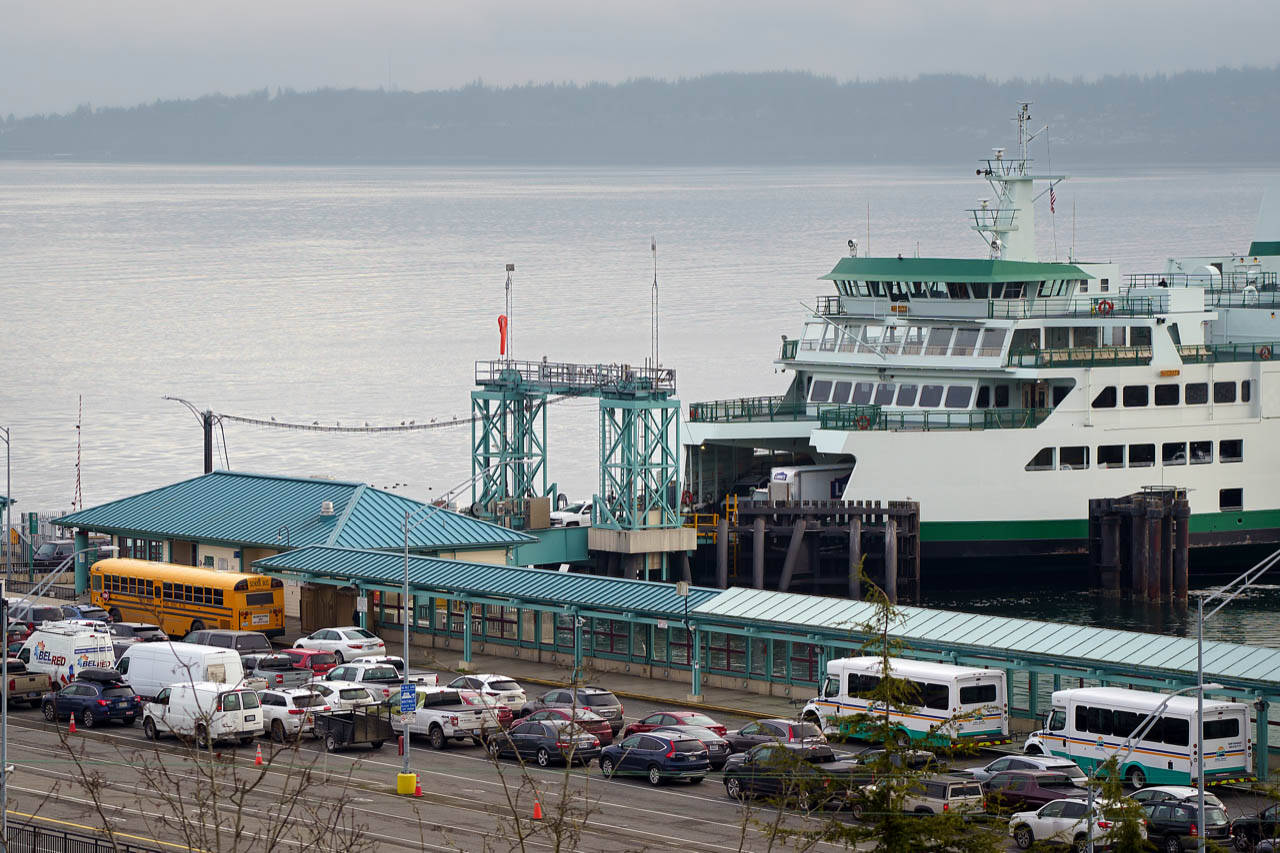The federal government is going to help pay to electrify the Clinton ferry terminal, which will be the first in the state to get juiced.
The Federal Transit Administration awarded State Ferries a $4.9 million grant for the construction of a charging station on the Clinton side of the Mukilteo-to-Clinton route to serve two plug-in, hybrid-electric ferries in the future. The route is scheduled to receive the Olympic-class MV Wishkah, the state’s first new hybrid electric ferry, in 2027, according to State Ferries.
The total cost of the charging station is estimated at $19.3 million, with the state paying the balance. State Ferries determined that a charging station will only be needed on the Clinton side, partly because the route is relatively short.
The route between Whidbey and the mainland is the second busiest route in the state, with 3.4 million riders last year, while it remains the busiest route for drivers. State Ferries reported that ridership dipped by 3% in 2022 as compared to 2021, though the number of walk-ons surged by 19%. The Seattle-Bainbridge Island route is the busiest in the state in terms of total riders.
Under Washington State Ferries’ system electrification plan, the goal is a fleet of 26 vessels, 22 of which would be hybrid-electric vessels, by 2040. The plan would require construction of 16 new ferries, the conversion of six diesel ferries and construction of charging stations at 17 terminals.
The plan would dramatically reduce carbon emissions and spending on fossil fuels. The move toward an electric fleet would allow State Ferries, the largest ferry system in the nation, to meet a state law that requires the 70% reduction of greenhouse emissions by 2040. In addition, the electric-powered vessels have a quieter propulsion system, which benefits noise-sensitive orcas and other marine life.
The timeline in the electrification plan will likely be pushed back. The Wishkah was originally planned to be delivered by 2024, but the state and Vigor shipyard of Seattle couldn’t agree on a price. The state will reissue a request for proposals this year, with the vessel estimated to be delivered in late 2027, State Ferries reported.
U.S. Senators Patty Murray and Maria Cantwell both announced Thursday that State Ferries was receiving three grants, totaling $11.6 million. In addition to funding for the Clinton dock project, State Ferries received a $5 million grant to fund improvement at the Southworth ferry terminal and a $1.7 million grant for new payment kiosks and online payment upgrades across the ferry system.
Funding for the projects comes from the Federal Transit Administration’s Electric or Low-Emitting Ferry Pilot Program and the Ferry Boat Discretionary Grant Program.
“Like so many in Washington state, ferries are a part of my commute, so I know firsthand just how important it is that they are running on schedule to get people where they need to be,” Murray said in a statement. “We really depend on our ferries — that’s why I worked tirelessly to secure new funds to help WSDOT expand and improve their service and achieve their goal of electrifying the entire Washington State Ferries system.”



